For Carolyn Leigh, it reconnected her with her husband, John, whose progressive dementia had begun to unravel their relationship. For Richard Allen Driver, diagnosed with mild cognitive impairment, it reawakened a childhood memory and gave him hope. And for Paula Calvert and her father, dementia patient John Irwin, it was just what the doctor ordered.
“It becomes healing,” said Calvert. “I’d do it every day if I could.”
These people were brought together by Connected Horse, a nonprofit organization partnering with the UC Davis School of Veterinary Medicine and Center for Equine Health and the Alzheimer’s Disease Center. Together, they are studying the effects of participation in activities with horses on people with dementia and their caregivers.
Connected Horse marries dementia expertise with a love of horses
Connected Horse was founded in 2015 by Nancy Schier Anzelmo and Paula Hertel, both horse lovers and professionals in the fields of senior and dementia care and gerontology, which is the study of aging and the problems of older people. Their nonprofit is committed to the belief that horses and horse activities can provide humans with valuable insights into the human healing process and purpose.
“Equine therapy has helped so many other populations,” said Schier Anzelmo. “Why couldn’t it help people with dementia and their caregivers?” The concept made sense to Claudia Sonder, a veterinarian at the Center for Equine Health.
Connected Horse is a Beautiful Thing to Watch
“We are meeting a societal need,” she said. “We can collaborate and try to create a program where horses would have relevance in today’s society. It’s been a beautiful thing to watch.”
Connected Horse, which piloted a study with Stanford University, recruits people with dementia or mild cognitive impairment and their caregivers. Participants join 5-hour workshops that include activities such as grooming and leading horses, as well as discussion groups and awareness practices. The goals are to enhance communication skills and interpersonal relationships and to reduce stress.
Standardized tests before and after the workshops are given to measure stress, burden, mood and social support for both the caregiver and the patient. “We hypothesize that the program will have a positive impact on mood, behavior and social support for both the caregiver and the patient,” said Sarah Farias, a professor of neurology, Alzheimer’s Disease Center researcher and the study’s principal investigator. The study, scheduled to wrap up later this year, seeks to formally evaluate the program’s impact.
Learning to communicate with horses helps patients and caregivers connect
On a recent day at the Equine Center for Health in Davis, each participant-caregiver pair was brought to a stall. Each pair spent several minutes quietly connecting with a horse in a way that would encourage the horse to come to them.
Sonder explained that horses are prey animals and very much in tune with their environments, mirroring back what they are experiencing.
Horses Respond
“When our dementia patients and caregivers approach a horse together and their energy is calm, collaborative and positive, the horse responds to that,” she said. “If the energy is one of concern, control or fear, the horse will mirror that back. So it really helps to learn how to communicate with each other to read the cues in the environment.”
Driver learned that the first time he went to a workshop.
“I was emotionally demanding that the horse come to me, and he wouldn’t come,” Driver said. “When I relaxed, he came to me.”
Relationships Between Patient & Caregiver
The ability to communicate and interact with the horse also translates to the relationships between the patient and caregiver.
For Carolyn and John Leigh, the workshops sparked a profound change in their marriage.
“Before he was diagnosed I didn’t know what was going on with him cognitively,” Carolyn Leigh said. “I was losing my patience. I was stressed all the time. He couldn’t work. I couldn’t put all the pieces together.”
After her husband’s diagnosis she became more educated about dementia, and the couple signed up for the Connected Horse study.
“I learned patience and understanding and being in the moment,” she said. “We got to do something together. I learned so much about compassion that I’ve taken with me. All of a sudden I feel like in love with him like I used to be even though he’s not himself. But I get it. It’s serving me and it’s serving him.”
To learn more about Connected Horse call 916-708-4904 or email info@connectedhorse.org.
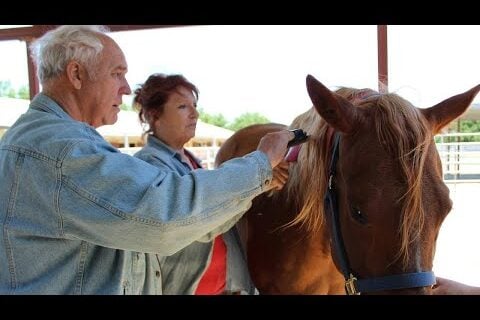
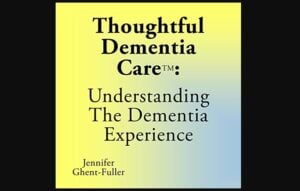
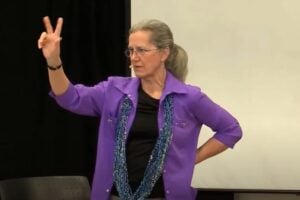



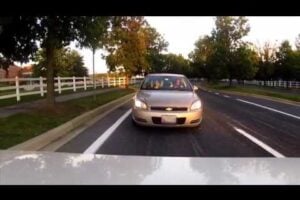


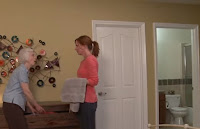


I agree wholeheartedly that the connection between horses and those living with dementia is profound. What a difference it can make in each individual’s lives mentally and emotionally. I don’t own any horses nor do I ride any but I fell in love with them many years ago when I was at a low period in my life saddened by some events that was taking place. Out of the blue I received a invitation from someone I knew to come and check out her horses. My children were small at the time. So we went and the moment I sat on one the sadness I felt left me it just went away instantly so I have been forever grateful for horses and loved them since that day. I am a Home Care worker in the process of opening up a group home for those living with dementia. My bigger picture is that I will have a second group home with therapy horses and dogs.
Thank you Connected Horse for all that you do.